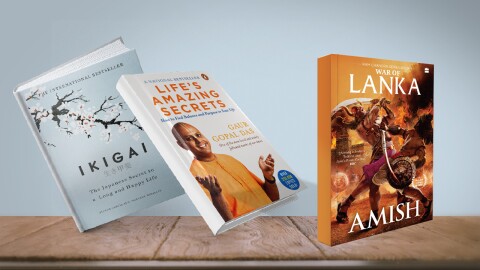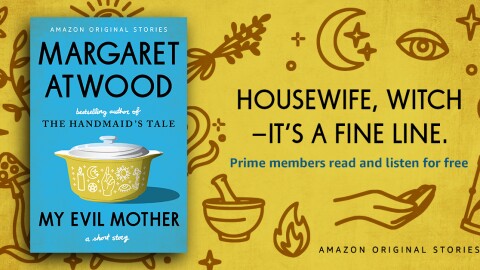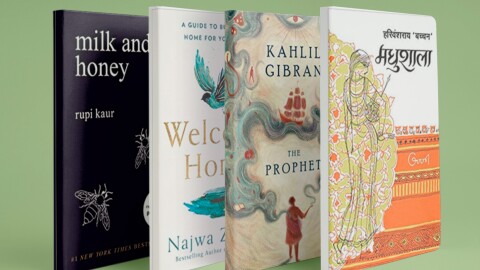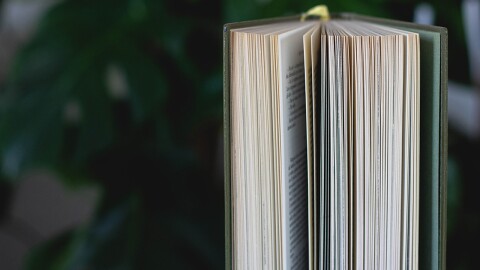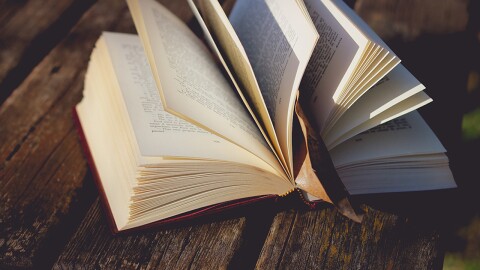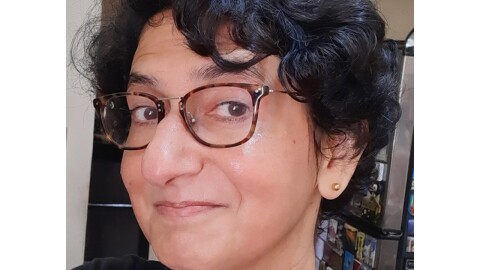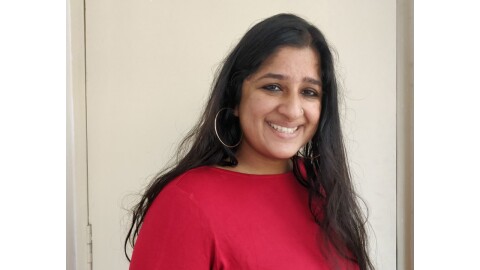Amish Tripathi is a diplomat, a renowned author, a columnist and since October 2019, he has also been the Director of the Nehru Centre in London. Amish published his first book in 2010 and has written 8 books till date. His books have sold 5.5 million copies and have been translated in as many as 10 Indian and 9 International languages.
As his latest book, Legends of Suheldev: The King who saved India, tops of the Nielsen Best Seller list ever since its launch in June 2020, we speak to its author Amish Tripathi at Amazon India virtual Fishbowl that was held recently. Excerpts from the chat...
How the book - Legend of Suheldev was born
I've written 8 books till now, 7 fiction, 1 non-fiction and all my fiction books begin with a core philosophy that I want to convey and the story is essentially a wrap up around that core philosophy and it has to be a story which by itself should be inspiring. It should convey a philosophy as well.
Our soldiers who are fighting at the border against countries that want to invade us, they don't expect us to be as brave as them. But they expect us to at least remember to be worthy of their sacrifice.
I heard of this story at a conclave in Goa from two friends of mine, Abhinav Prakash and Sanjeev Sanyal. Both scholars, Abhinav is a professor, Sanjeev is the Principal Economic Advisor for the Government of India and is also a scholar. They told me about King Suheldev, and at one level I was embarrassed as I consider myself as a very well read person. I read at least 5-6 books per month. I have been reading at that pace for decades. I have roots in the U.P. My father's family comes from Uttar Pradesh (UP) and King Suheldev wasn't too far from Kashi where my father's family's roots are. And I was embarrassed that I had never heard of him and at the same time saddened that I hadn't heard of him. The worst thing that people can do to their heroes is to forget them. Our heroes and heroines, those who fight to protect us, they don't expect us to be as brave as them and fight next to them. Our soldiers who are fighting at the border against countries that want to invade us, they don't expect us to be as brave as them. But they expect us to at least remember to be worthy of their sacrifice.
On Suheldev's 160 years of peace
It was saddening that so many of us even in UP hadn't heard of king Suheldev and so many across India hadn't heard of him. He is probably the most consequential hero that you've not heard of. The Turks who were the military superpower of the world from the 11th to the 17th century. They were originally from Central Asia. They aren't originally from Turkey. They are originally from Central Asia. They conquered much of the known world. Arab world, much of Europe, much of North Africa, India, right and they were among the most brutal warrior race the world has ever seen and King Suheldev got us 160 years of peace from their invasions. In India they ran into King Suheldev in the Battle of Bahraich and he defeated them in such a devastating manner that no Turkic tribe came back to India for nearly 160 years. Shouldn't we know this story of a great warrior hero like this? What drives me are philosophies that can be conveyed through the stories and in the philosophy it comes through very clearly from King Suheldev's story is that when we Indians are united, we are freakin' unbeatable.
The interpretation that I draw is not that our ancestors were cowards, that our ancestors were freaking brave. Our resistance never stopped. They kept fighting and fighting and fighting. They never surrendered. That's why we're still alive today.
Core message of his book
The problem is more often than not we are divided. Our default state is to start fighting with each other. Sabse zyaada maza apne ko ek dusre se ladne me ata hai. (We enjoy fighting with each other the most). We find some or the other reason: religion, language, caste, region, some or the other reason, if nothing then we'll find cricket as a reason but we'll start fighting with each other. But whenever a leader is able to unite us we can defeat anyone in the world. And that message is even more critical today. That to me is the core message of King Suheldev, a critical message that we must learn today.
The Immortal Writers Centre's method of writing
My biggest problem is I might die before I finish all my series ideas that's why I have started the writers' centre. I don't want to carry my stories to my cremation pyre. The idea (of this centre) is very simple, Lord Shiva has blessed me with more ideas than I can ever write. I write the story summary, could be 5000 words-10000 words which I share verbally or in writing with the people at the writers centre. Either a team or an individual will write the first draft which could be say 65-70000 words or 80000 words and then I work on the second draft and finalize the manuscript. So what it does is in effect expands my capacity with the beginning and the genesis of the process, the story and the second draft is my work so to you it'll read like my book but the addition of the writers centre allows me to come out with more books more often. I have left clues for at least for 25 series across all my books. Series, not books, series. I have only finished one and a half series till now.
Amish's core books
It takes me a year and a half to two years on average between books. My publishers and Amazon company Westland, would love nothing more than a book coming out from my house every three months which I do not have the capacity to do. It takes me a year and a half to two years between books. Hence the idea of a writers Centre. What it does is that it improves my capacity. There are core books only that I'll write like the Shiva Trilogy, Ramchandra series only I have written. The balance books of the Ramchandra series which are two more than one of the Mahabharat series, Lord Rudra Mohini series that only I will write. But other ideas I will get done through the writers centre.
Brutal war scenes in book. How painful was it to write?
Yes the war scenes are brutal. Some of the scenes were very painful to write. I am a very devout Lord Shiva worshipper so for me writing the scene of the destruction of the Somnath Ji temple and the desecration of the idol was very painful. I couldn't describe beyond a point. I just ended it at a point. It was painful.
Yes the war scenes are brutal. The destruction of the Somnath Ji temple and the desecration of the idol was very painful. I couldn't describe beyond a point. I just ended it at a point.
What Mohammad Gazni did, all these guys were all Turks, Mohammad Ghazni, Allaudin Khilji, Babar, they were all Turks. The other aspect to know is that the world has never seen a warrior race like the Turks, ever. The Spartans were nothing compared to these guys. The Spartans were a great warrior race. Indians had great warrior races as well but no one has ever matched the Turks. Mongols to an extent but even they weren't, like Taimur for example was a Turk. He killed 5% of the world's population 800 years ago, when it wasn't easy to kill 5% of the world's population.
Remember these days, you can kill in large numbers right, you have nuclear bombs, you have machine guns, you have dynamite. Those days if you want to kill someone you have to do it the hard way. Stab, behead, you know. Imagine in that manner he killed 5% of the world's population. Can you imagine the brutality? It was a society built solely around war, nothing else. They started getting civilized by the 17th century, across the world, they started calming down which is when they started losing battles. But before that they were almost unbeatable. And therefore their wars were exceptionally brutal because they were exceptionally-the world hasn't seen people like that before or after which makes the book brutal as well. It's just the nature of the story.
Religion and liberalism
King Suheldev is deeply religious and liberal. In the Indian way, it is obvious that someone deeply religious will be liberal, there is no contradiction. Because you're illiberal only if you think that my religion is the only true religion and if someone follows another religion he then has to be converted or killed. Then you are illiberal but that's not the Indian way. We are deeply respectful of all religious paths.
Questioning the interpretation of our history
I think the key takeaway from this book for me is, I hope others takeaway as well that the way history has been taught to us, the interpretations drawn are in my opinion wrong. I am not questioning the facts that invaders attacked us, killed millions, destroyed thousands of temples, burned tens of Universities to the ground, yes those are facts and there are many battles that our ancestors lost, those are facts. The interpretations drawn from that which many Indians like to draw is that our ancestors were weak or that they were cowards.
India's tough warrior tradition
At times we back project Mahatma Gandhi's philosophies into the powers that maybe we were very non-violent. India has the oldest pacifist traditions in the world, no doubt. Jainism is the oldest pacifist tradition in the world and even Buddhism and large parts of the Vaishnav path of Hinduism have imbibed those pacifist traditions. But India had a tough warrior tradition as well. And the thing to remember, I am not questioning the fact that the invaders came and destroyed and caused much death and destruction for many centuries. First the Turks, then the Europeans. I am not questioning those facts. I am questioning our interpretations.
All other ancient cultures, pre-bronze age cultures which started their paths to civilization with us such as pharaonic Egypt or pagan Mesopotamia or zoroastrian Persia. They are all dead. We've lost a lot but we are still standing.
Every single other pre- bronze age culture has been wiped out. Every single other one. China is ancient but it is not pre-bronze age. It is only two and a half-three thousand years old. The Bronze age is five thousand years ago. India is older than that. We have traditions which have come down since then. All other ancient cultures, pre-bronze age cultures which started their paths to civilization with us such as pharaonic Egypt or pagan Mesopotamia or zoroastrian Persia. They are all dead. They didn't survive the attacks that they faced. The Turks attacked those cultures as well and they attacked us too but we are still standing thousand years later. We've lost a lot but we are still standing.
Our brave ancestors
So the interpretation that I draw is not that our ancestors were cowards, that our ancestors were freaking brave. Our resistance never stopped. They kept fighting and fighting and fighting. They never surrendered. That's why we're still alive today. So the interpretation that I draw is actually that we are the toughest buggers around. We are the only ones from more than five thousand years ago who are still alive. We are the only ones who fought a force of history and protected that which is most precious, our way of life. And that is something we need to learn about ourselves, how gritty and tough we are and that is something other cultures have to learn about us as well. There is a perception that if they attack us you know, we're cowards, we'll lose. No we are not. We will fight back. We will not land the first blow but if you attack us we are not going to turn the other cheek. You slap one cheek, we'll box you back. We'll not just slap you back, we'll box you back. So we will not land the first blow, that is our attitude. Outside of Rajendra Chola, at almost no time in human history did any Indian emperor send an Army abroad to conquer any land. But we fought back invaders. So which means that we will not land the first blow but if you hit us, we will hit back and we will hit back hard. Which is what the Bihar Regiment taught an enemy of ours recently as well. We will hit back hard.
Personal grief and tiding over it with writing
Personal life has been extremely painful, over the last few years, one tragedy after another. I lost people that I admired, close to me and various things have happened. I think a few things which kind of became clear and I am not one of those go to therapists or you know, psychologist or someone like that I mean, I am not going to open up to someone who I don't know. And tough times happen to everyone. I think the key thing to remember is that no one can escape grief, no one. All of us will be cursed with our share. Ups and downs are a part of life.
As Gautam Buddha had said 'Grief is the fundamental reality of the Universe'. It was the first out of his four noble truths. All of us will suffer grief. What gets us through it often is the support of those close to us, our family and friends. By saying those who are close to us, I am not referring to your social media friends. You know your Facebook, Instagram, twitter, they are not your friends. They are acquaintances, they are not your friends. Those who are close to you they are never more than five or ten people. And those are the five or ten people who will die for you without a second thought and who probably you will die for without a second thought. I think it is the support of those people which actually gets you through difficult parts of life. Siblings, three close friends and yeah, they get you through life.
My biggest problem is I might die before I finish all my series ideas that's why I have started the writers' centre. I don't want to carry my stories to my cremation pyre.
Film or webseries on his books
Well that is certainly the plan. There have been certain deals that have been signed with various people, 2 or 3 deals have been signed. For various reasons things have not worked out. What had happened on Immortals of Meluha even in terms of publishing, it had been rejected by every publisher and hadn't worked out for various reasons and I self-published my first book, Immortals of Meluha. Then it kind of took off. I think some 4-5 months after launch you know, Westland then took it over, became my publisher. So I was thinking why not do the same thing for a movie or a series as well.
I have actually started my own production company in Mumbai called Immortal Studios. We've hired a team. My elder brother Anish who has worked in KPMG, is driving it. We've put a team in their care and supervision and we are aiming to actually develop some of my properties myself, Suheldev into a movie and series for the Shiva trilogy and Ramchandra series. So let's see how it goes.
On the writer's block
I have never faced a writer's block in my life except for one period and normally my problem isn't that I'll run out of ideas. At one time when I did get writer's block, it was for a few months, it was for 2-3 months. Very very difficult personal phase, two years ago. My mind wasn't in a good place, I was perhaps in depression and my twin brother and I, we were watching, I had lost someone very close to in tragic circumstances and my twin brother and I, we were watching TV.
You know how men get when we don't want to think about something, we randomly keep surfing so he was just randomly surfing TV and I was just sitting on the side and watching and a song came up, a Hindi song. I don't know why I told him, 'stop, stop, stop'. I didn't recognize this song so I Shazamed it and I downloaded it on my app. That evening I went for a walk. Normally I have a playlist which I listen to. That evening I don't know why I didn't switch on the playlist. I just started songs. How the Amazon app works is, normally if you just click songs the songs you've downloaded last, that one starts.
All of us writers, we have some key you know, which opens up the portal as it were, putting our imagination into that parallel universe. For me that key is music. So music helped.
So the song that I had just downloaded, that started and I was in the park and just the first ten seconds and I started crying and I was listening to that song continuously for over an hour, continuously crying while listening to that song and the next three-four chapters just came down in a flood. I started writing again that night. This is for Ravan and probably my best three-four chapters I've ever written. So music helped. All of us writers, we have some key you know, which opens up the portal as it were, putting our imagination into that parallel universe. For me that key is music. So music helped.
His daily schedule
I am a workaholic. I live alone in London, since my son lives with my ex-wife and I would normally every few weeks even if it wasn't a long weekend I would go back to see my son but thanks to COVID, I haven't been able to since February actually. So since I live alone, I do pretty much nothing besides work. I wake up everyday around 5-5:30. I do my Yoga, Pranayam, Puja and I normally write every morning. At least attempt to. I am a diplomat as well right, I am the Director of the Nehru Centre. So I get into that work by 9-9:30, busy with that, interviews etc. like this, events till around sixish. At six I normally go for a jog to Hyde Park which is right next to my house . I come back and then I work on any notes that I have to for official stuff and I'm asleep by 10-10:30 and read normally at night before sleeping. So an hour usually, before sleeping, I read on the bed. Like I said, I'm a workaholic, boring guy.
Spending time during COVID
Due to COVID I can only see my son through video calls, that is tough. I do call him regularly but I mean whatever the technologists say, it is not the same as meeting and hugging him so that sucks and London is not as strict to lockdown now. So even when it was in lockdown I could go out for a jog everyday. So I would meet some friends at Hyde Park next to our home. So it is not as strict a lockdown as from what I've been told is being done in Mumbai where people have been stuck in their flats for many weeks. So in that sense it is a little easier and one of the things no doubt, I always thought of myself as a loner. Not someone who is too social but I have now realized with this lockdown, I've realized the difference between a loner and a monk. I am certainly not a monk. A monk means you have no interaction at all. It is just by yourself in the Himalayas. No I am not a monk. Loner means you have few friends but you do have some friends. So yeah, I guess that is a learning I have derived of myself in these last few months.
Quick takes
All time favorite author? Normally whenever I answer this question, it is off the books that I have read in the recent past, in the last few months, which ones do I like. So I like Pavan Varma's "The Greatest Ode to Lord Ram'' and I am nearly finishing a pretty disturbing book, "When I Hit You". by Meena Kandasamy.
All time favorite movie? Sholay, I love, certainly one of my all time favorites. Pyaasa, one of my all time favorites. Gone With The Wind, one of my all time favorites and Inception, the recent one and one more Rajnikant's Chandramukhi, one of my all time favorites, I love it. First time I saw it, I saw it in Tamil without subtitles.
Your biggest pet peeve? Pet peeve, nothing, I am chilled out. Nothing will get me, I guess sometimes when people are late to meetings, normally I try to be on time. Yeah, that happens. In India it happens well often.
Your favorite Indian actor or actress? Amitabh Bachchan and Madhuri Dixit.
If you're given a choice, mountains or beaches? Mountains.
Classical music or Pop? That depends on my mood. So yeah, it depends on my mood.
Reading fiction or nonfiction? Non-fiction. Almost 90% of my reading is non-fiction.
Your most embarrassing moment? I think enough time has passed that I can speak of it right now. I was in Xavier's college in Mumbai and I graduated in Bsc. Mathematics and one of the reasons why I chose mathematics was, it didn't have practicals. So therefore one had more time for extracurricular activities. So I was active in fest classical music, Malhaar, our inter-college festival.
I was a chairperson of that. So I was very active in extracurriculars. So this was in Final year B.Sc where the question paper had come for the prelims, the college exams and I had raised my hand. Someone came and I said "can you call Prof. Padukone?" So the man says what happened. So I said there is an error in this question. He said no, the question is correct. I said, "there is an error , please call Prof. Padukone." So the man says I am Prof. Padukone, you've never attended my class, have you.


